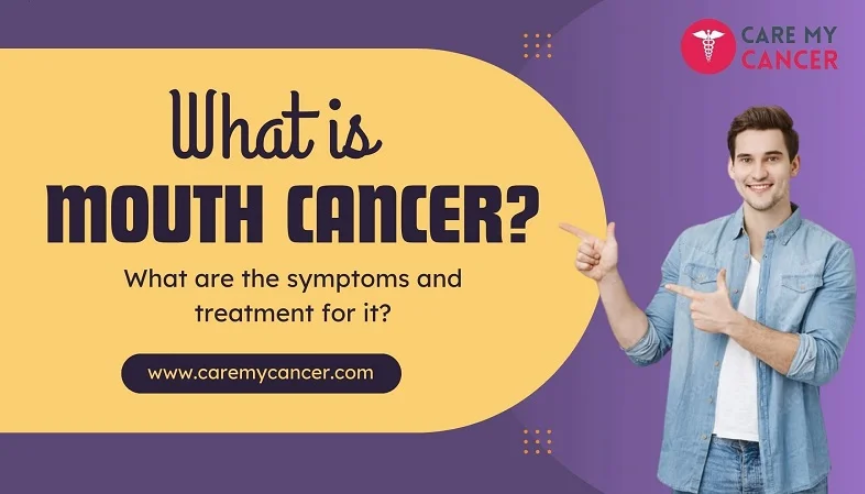Mouth Cancer: Understanding the Symptoms and Treatment
In this comprehensive guide, we delve into the intricate details of mouth cancer, shedding light on its symptoms, treatment modalities, and prognosis. Understanding the nuances of this condition is crucial for early detection and effective management.
What is Mouth Cancer?
Mouth cancer, also known as oral cancer, refers to the abnormal growth of cells in the oral cavity or oropharynx. These malignant cells typically develop in the lips, tongue, gums, roof or floor of the mouth, or the inner lining of the cheeks.
Understanding the Pathophysiology
The development of mouth cancer is often multifactorial, involving a combination of genetic predisposition, lifestyle factors, and environmental influences. Chronic tobacco use, excessive alcohol consumption, and human papillomavirus (HPV) infection are among the primary risk factors associated with this condition.
Identifying the Symptoms
Recognizing the early signs and symptoms of mouth cancer is paramount for timely intervention and improved prognosis.
Persistent Mouth Sores
One of the hallmark symptoms of mouth cancer is the presence of persistent mouth sores that fail to heal within a few weeks. These sores may be accompanied by pain, tenderness, or numbness in the affected area.
Unexplained Bleeding
Unexplained bleeding in the mouth, throat, or gums can signal an underlying issue, including mouth cancer. Individuals experiencing recurrent bleeding should seek prompt medical evaluation.
Difficulty Swallowing or Chewing
As mouth cancer progresses, it may interfere with essential functions such as swallowing or chewing. Persistent difficulty in these activities warrants further investigation to rule out potential malignancies.
Changes in Voice or Speech
Noticeable changes in voice quality or speech patterns can indicate the involvement of the oral cavity or oropharynx. Hoarseness, persistent sore throat, or alterations in articulation may prompt suspicion of underlying pathology.
Lump or Thickening
The presence of a lump, thickening, or mass in the oral cavity or neck region should raise concerns regarding possible malignancies. Any palpable abnormalities should be promptly evaluated by a healthcare professional.
Persistent Ear Pain
Mouth cancer can manifest with referred pain, leading to persistent discomfort in the ear region. Individuals experiencing unexplained ear pain in conjunction with other symptoms should undergo comprehensive assessment.
Also Read: Signs & Symptoms of Lung Cancer in Females
Diagnostic Approaches
Accurate diagnosis of mouth cancer relies on a combination of clinical evaluation, imaging studies, and tissue biopsy.
Clinical Examination
A thorough physical examination of the oral cavity, including the lips, tongue, gums, and throat, is essential for detecting suspicious lesions or abnormalities.
Imaging Studies
Imaging modalities such as CT scans, MRI scans, or PET scans may be employed to assess the extent of tumor involvement and identify potential metastases.
Tissue Biopsy
A definitive diagnosis of mouth cancer is established through tissue biopsy, which involves the collection and analysis of abnormal cells from the affected area.
Treatment Modalities
The management of mouth cancer typically entails a multidisciplinary approach, incorporating surgery, radiation therapy, chemotherapy, or targeted therapy based on the individualized needs of the patient.
Surgical Intervention
Surgical resection of the tumor and surrounding tissues is often performed to achieve complete tumor removal while preserving essential oral functions.
Radiation Therapy
External beam radiation therapy or brachytherapy may be utilized as primary treatment modalities or adjuvant therapies to target residual tumor cells and reduce the risk of recurrence.
Chemotherapy
Chemotherapeutic agents may be administered alone or in combination with radiation therapy to enhance treatment efficacy and improve overall outcomes.
Targeted Therapy
Targeted therapies, such as monoclonal antibodies or tyrosine kinase inhibitors, are designed to selectively target specific molecular pathways involved in tumor growth and progression.
Prognosis and Survival Rates
The prognosis of mouth cancer depends on various factors, including the stage of disease at diagnosis, tumor characteristics, and response to treatment. Early detection and comprehensive treatment are associated with better outcomes and improved survival rates.
FAQs
What are the early signs of mouth cancer?
Early signs of mouth cancer include persistent mouth sores, unexplained bleeding, difficulty swallowing or chewing, changes in voice or speech, lump or thickening, and persistent ear pain.
How is mouth cancer diagnosed?
Mouth cancer is diagnosed through a combination of clinical examination, imaging studies, and tissue biopsy to confirm the presence of malignant cells.
What are the treatment options for mouth cancer?
Treatment options for mouth cancer may include surgical resection, radiation therapy, chemotherapy, or targeted therapy, depending on the stage and extent of the disease.
Can mouth cancer be prevented?
While not all cases of mouth cancer can be prevented, adopting a healthy lifestyle, avoiding tobacco and excessive alcohol consumption, and practicing good oral hygiene can reduce the risk.
What is the survival rate for mouth cancer?
The survival rate for mouth cancer varies depending on several factors but early detection and prompt treatment can significantly improve prognosis and increase survival rates.
Is mouth cancer contagious?
No, mouth cancer is not contagious. It develops due to genetic, lifestyle, and environmental factors, and cannot be transmitted from one individual to another.
Conclusion
Mouth cancer poses significant health challenges, but early detection, timely intervention, and comprehensive treatment can significantly improve outcomes and enhance quality of life. By raising awareness, promoting preventive measures, and supporting ongoing research efforts, we can strive towards reducing the burden of this disease on individuals and communities.

